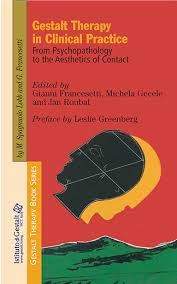Σιαμπάνη, Κ. (2011). Ψυχοεκπαίδευση οικογενειών ατόμων τρίτης ηλικίας. Στο Μ. Τσολάκη & Φ. Κουντή. Οι αλλαγές των περιθαλπόντων. Θεσσαλονίκη: Ελληνική Εταιρεία Νόσου Alzheimer και Συγγενών Διαταραχών; 335-344).
Σιαμπάνη, Κ. (2011). Ψυχοεκπαίδευση οικογενειών ατόμων τρίτης ηλικίας. Στο Μ. Τσολάκη & Φ. Κουντή. Δημιουργική επικοινωνία με τον ασθενή. Θεσσαλονίκη: Ελληνική Εταιρεία Νόσου Alzheimer και Συγγενών Διαταραχών; 296-310).
Σιαμπάνη, Κ. (2011). Ψυχοεκπαίδευση οικογενειών ατόμων τρίτης ηλικίας. Στο Μ. Τσολάκη & Φ. Κουντή. Η μεταμόρφωση των Ελλήνων ανδρών, όπως παρατηρήθηκε σε μια ομάδα ψυχολογικής στήριξης περιθαλπόντων ατόμων που πάσχουν από άνοια, και με τις αρχές και τους στόχους της ψυχοθεραπείας Gestalt.. Θεσσαλονίκη: Ελληνική Εταιρεία Νόσου Alzheimer και Συγγενών Διαταραχών; 476-493).
Σιαμπάνη, Κ. (2010). Εικαστική Θεραπεία στην άνοια. Στο Μ. Τσολάκη & Φ. Κουντή. Εφαρμοσμένα Θέματα Παθολογικού Γήρατος. Θεσσαλονίκη: Ελληνική Εταιρεία Νόσου Alzheimer και Συγγενών Διαταραχών; 137-151.

Συμμετοχή στο βιβλίο για την θεραπεία Gestalt στην κλινική πράξη από τους: FrancoAngeliGianni Francesetti, Michela Gecele and Jan Roubal.
Το βιβλίο είναι γραμμένο από σημαντικούς θεραπευτές Gestalt ενώ παράλληλα σε κάθε υποκεφάλαιο κάθε συγγραφέας έχει δεχτεί ένα σχόλιο από συνάδελφό του που ασκεί κλινικό έργο στον αντίστοιχο τομέα.
Στο κεφάλαιο Part IV του βιβλίου αυτού που αφορά: Specific Clinical Sufferingς και συγκεκριμένα την προσέγγιση της θεραπείας Gestalt στην άνοια είχα την χαρά και την τιμή να συμμετέχω κι εγώ με ένα σύντομο σχόλιο στο άρθρο του εξαιρετικού Ολλανδού συναδέλφου Frans Meulmeester με τίτλο: “What Does it Look Like?”. A Gestalt Approach to Dementia.
Θα το δείτε παρακάτω με το νούμερο 18. [“What Does it Look Like?”. A Gestalt Approach to Dementia, by Frans Meulmeester – Comment, by Katerina Siampani]
Τίτλος: Gestalt Therapy in Clinical Practice
From Psychopathology to the Aesthetics of Contact
Preface by Leslie Greenberg

“A Gestalt therapy handbook on psychopathology, and to boot a relational ap-proach to this complex topic! This book is ground-breaking and revolutionary.
Breaking new ground is always controversial, as I am sure this book will be, both among Gestalt therapists and among more traditional medical model psychopatho-logically oriented psychiatrists and psychologists.(…)
This book is revolutionary in its effort to tackle the topic of psychopathology from a Gestalt relational perspective and it offers a specifically formulated Gestalt therapy view of understanding psychopathology.
It views psychopathology as a co-created phenomenon of the field that emerges at the contact boundary and as being able to be transformed in the process of con-tact. This is a laudable attempt to expand the core concepts of a Gestalt theory of human functioning to understanding seriously disturbed clients and psychotic func-tioning” (Leslie Greenberg)
Gianni Francesetti Gestalt therapist, psychiatrist, supervisor and international trainer. President of the European Association for Gestalt Therapy, President of the Italian NUO (Federazione Italiana delle Associazioni di Psicoterapia), Past President of the Società Italiana Psicoterapia Gestalt, Associate Member of the New York Institute for Gestalt Therapy, member of the Society for Psychotherapy Research. He has au-thored articles, chapters, and books in the field of psychiatry, psychopathology and psychotherapy.
Michela Gecele Gestalt therapist, psychiatrist, supervisor and psychotherapy trainer. She has been working for 19 years in a public mental health service, for three years has coordinated a psychological and psychiatric service for immigrants and she is supervisor of public mental health services and of programs for immigrants. She has authored articles and books in the field of psychiatry, psychotherapy and transcultur-al matters. She is a member of the Human Rights & Social Responsibility Committee of the European Association for Gestalt Therapy.
Jan Roubal Gestalt therapist, psychiatrist, supervisor and psychotherapy trainer. He teaches psychotherapy and psychiatry at Masaryk University in Brno. He is a member of the European Association of Psychotherapy, European Association of Gestalt Ther-apy (chairing the Research Committee), Society for the Exploration of Psychotherapy Integration and Society for Psychotherapy Research. He publishes texts mostly on psychotherapy in clinical practice and has co-edited a Czech publication entitled Current Psychotherapy.
Libr Novità
Preface, by Leslie Greenberg
Introduction, by Gianni Francesetti, Michela Gecele and Jan Roubal
Acknowledgements
Part I
Basic Principles of Gestalt Therapy in Clinical Practice
1. Fundamentals and Development of Gestalt Therapy in the Contemporary Context, by Margherita Spagnuolo Lobb – Comment, by Gordon Wheeler
2. Gestalt Therapy Approach to Psychopathology, by Gianni Francesetti, Michela Gecele and Jan Roubal – Comment, by Peter Philippson
3. Gestalt Therapy Approach to Diagnosis, by Jan Roubal, Michela Gecele and Gianni Francesetti – Comment, by Antonio Sichera
4. Developmental Perspective in Gestalt Therapy. The Polyphonic Development of Domains, by Margherita Spagnuolo Lobb – Comment, by Ruella Frank
5. Situated Ethics and the Ethical World of Gestalt Therapy, by Dan Bloom – Comment, by Richard E. Lompa
6. Research and Gestalt Therapy, by Ken Evans – Comment, by Leslie Greenberg
7. Combination of Gestalt Therapy and Psychiatric Medication, by Jan Roubal and Elena Křivková – Comment, by Brigitte Lapeyronnie-Robine
Part II
Specific Contexts and Focuses
8. Social Context and Psychotherapy, by Giovanni Salonia – Comment, by Philip Lichtenberg
9. Political Dimension in Gestalt Therapy, by Stefan Blankertz – Comment, by Lee Zevy
10. Living Multicultural Contexts, by Michela Gecele – Comment, by Talia Bar-Yoseph Levine
11. Gestalt Therapy and Developmental Theories, by Giovanni Salonia – Comment, by Peter Mortola
12. Shame, by Jean-Marie Robine – Comment, by Ken Evans
Part III
Specific Life Situations
13. The Gilded Cage of Creative Adjustment: a Gestalt Approach to Psychotherapy with Children and Adolescents, by Nurith Levi – Comment, by Neil Harris
14. Risk of Psychopathology in Old Age, by Frans Meulmeester – Comment, by Martine Bleeker
15. Loss and Grief. Sometimes, just one person missing makes the whole world seem depopulated, by Carmen Vázquez Bandín – Comment, by Gonzague Masquelier
16. The Power of “Moving on”. A Gestalt Therapy Approach to Trauma Treatment, by Ivana Vidakovic – Comment, by Willi Butollo
17. Assessing Suicidal Risk, by Dave Mann – Comment, by Jelena Zeleskov Djoric
Part IV
Specific Clinical Sufferings
18. “What Does it Look Like?”. A Gestalt Approach to Dementia, by Frans Meulmeester – Comment, by Katerina Siampani
19. Dependent Behaviors, by Philip Brownell and Peter Schulthess – Comment, by Nathalie Casabo
20. Beyond the Pillars of Hercules. A Gestalt Therapy Perspective of Psychotic Experiences, by Gianni Francesetti and Margherita Spagnuolo Lobb – Comment, by Gary Yontef
21. Gestalt Therapy Approach to Depressive Experiences, by Gianni Francesetti and Jan Roubal – Comment, by Joe Melnick
22. Bipolar Experiences, by Michela Gecele – Comment, by Daan van Baalen
23. Anxiety Within the Situation: Disturbances of Gestalt Construction, by Jean-Marie Robine – Comment, by Myriam Muñoz Polit
24. Gestalt Therapy Perspective on Panic Attacks, by Gianni Francesetti – Comment, by Nancy Amendt-Lyon
25. Gestalt Therapy with the Phobic-Obsessive-Compulsive Relational Styles, by Giovanni Salonia – Comment, by Hans Peter Dreitzel
26. Anorexic, Bulimic and Hyperphagic Existences: Dramatic Forms of Female Creativity, by Elisabetta Conte and Maria Mione – Comment, by Irina Lopatukhina
27. Gestalt Approach to Psychosomatic Disorders, by Oleg Nemirinskiy – Comment, by Giuseppe Iaculo
28. Relational Sexual Issues: Love and Lust in Context, by Nancy Amendt-Lyon – Comment, by Marta Helliesen
29. Introduction to Personality Disturbances. Diagnostic and Social Remarks, by Michela Gecele
30. Borderline. The Wound of the Boundary, by Margherita Spagnuolo Lobb – Comment, by Christine Stevens
31. From the Greatness of the Image to the Fullness of Contact. Thoughts on Gestalt Therapy and Narcissistic Experience, by Giovanni Salonia – Comment, by Bertram Müller
32. Hysteria: Formal Definition and New Approach to a Phenomenological Understanding. A Psychopathological Reconsideration, by Sergio La Rosa – Comment, by Valeria Conte
33. Violent Behaviours, by Dieter Bongers – Comment, by Bernhard Thosold and Beatrix Wimmer

